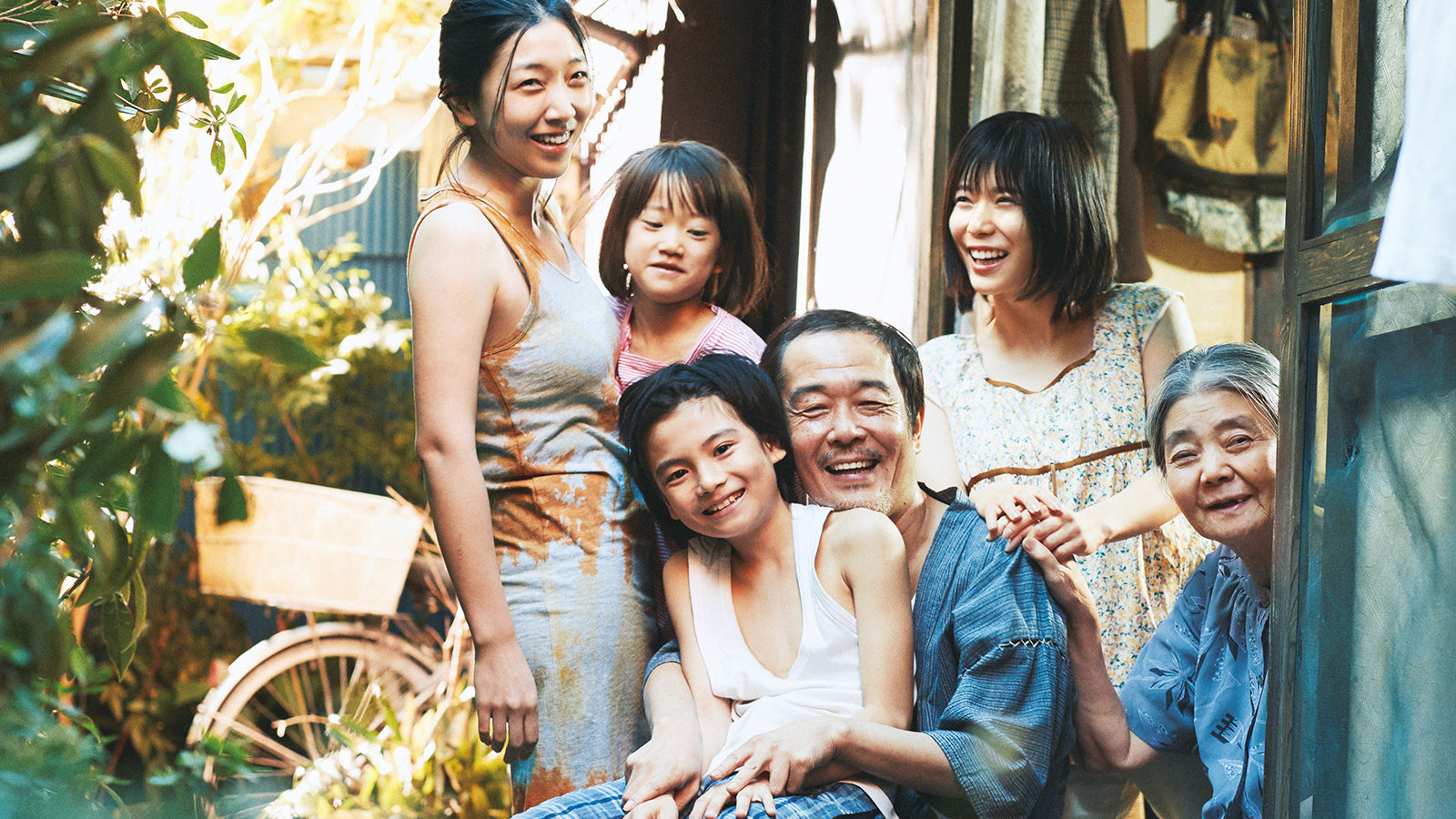SHOPLIFTERS (Manbiki Kazoku)
Magnolia Pictures
Reviewed by: Harvey Karten
Director: Kore-eda Hirokazu
Screenwriter: Kore-eda Hirokazu
Cast: Lily Franky, Ando Sakura, Matsuoka Mayu, Kiki Kilin, Jyo Kairi, Sasaki Miyu
Screened at: Park Ave., NYC, 10/31/18
Opens: November 23, 2018
It could be an ordeal for a typical American audience to watch two hours of a film with such a measured pace as “Shoplifters,” but for those who appreciate a deeply humanistic look at a scruffy, odd-ball Japanese family, the film offers rewards. The director, Kore-eda Hirokazu, in fact, is known for stories about folks who are living on the edge, barely getting by, or families that are faced with momentous decisions. Consider “Like Father, Like Son,” in which a businessman is told that babies were switched at birth. He faces the decision of a lifetime: to keep the boy that he and his wife raised from birth, or to tell the truth and replace him with his biological son. In “Our Little Sister,” a group of sisters living with their grandmother prepare for the arrival of a 13-year-old half-sister.
“Shoplifters,” which premiered at the Cannes Film Festival last May, is all about a rag-tag group of people who consider one another as though they are legally or biologically related. Husband, wife, children—all are together in a small rickety suburban home. They are led by a good-natured man, Osamu Shibata (Lily Franky) who makes the young ones earn their keep by shoplifting. Osamu is Fagin to his Oliver Twist-like “son” Shota Shibata (Kairi Jo) and “daughter” Yuri (Miyu Sasaki). Shota looks about 14 years old, having lived for a while with Osamu and Osamu’s “wife” Nobuyo Shibata. Five-year-old Yuri (Miyu Sasaki) is picked up by the family, the product of an abusive home, and she is treated like their own. In fact, it’s not completely clear just which people have makeshift identities and which are genuine. But all little Yuri had to do was show the burn on her arm, and she is immediately taken in and fed, no matter how poor her new family is. What income the family uses is largely from the alleged pension collected by Granny (Kiki Kilin), an elderly lady who seems always to be eating, schlurping up noodles or biting into croquettes.
When we meet Osamu and his “son” Shota, they have been shoplifting on a freezing winter’s night at the local grocery store. Back in the shack, the family ponders the danger of taking in five-year-old Yuri. Isn’t that kidnapping? It certainly is, but surely if anyone in the family were charged with the crime, they could always plead “guilty with an explanation” as we would do in traffic court.
Just as Osamu trains Shota to shoplift, so Shota trains Yuri. In one scene, Shota takes off with a pair of fishing rods, a theft made easy as Yuri pulls the plug on the alarmed door and replaces it when her “big brother” has done the deed. If this family were treated by the strict laws of kidnapping and shoplifting, the “dad” and “mom” would go to jail. But a wise judge would consider the circumstances, and a kidnapping charge would be reduced to probation. They have performed a service, taking in people from abusive homes and making them happy and healthy.
The sparks fly only in the final half hour, as police move in to enforce the law. Granny’s demise has much to do with the penalties they face, and while we root for everything to turn out according to true justice rather than the formal laws, we wonder what will happen to Shota, who obviously would like to stay forever with these quirky people, and to Yuri, who has been treated with kindness for the first time in her life.
The acting is naturalistic, standouts being Lily Franky as the putative head of the family and Kairi Jo as his teen “son.” Behind the lenses, Kondo Ryuto captures a part of Tokyo probably no tourist ever sees, while Hosono Haruomi issues a score that makes the proceedings look like a fairy tale—which, I suppose, it is. In Japanese with English titles.
121 minutes. © 2018 by Harvey Karten, Member, New York Film Critics Online
Story – B-
Acting – B
Technical – B
Overall – B






